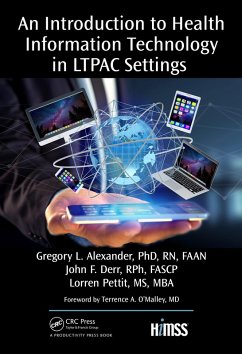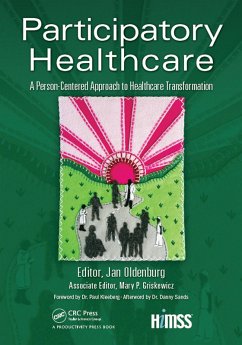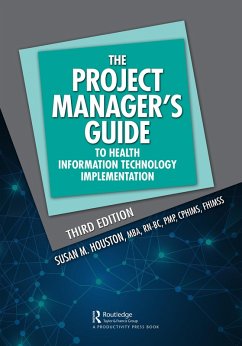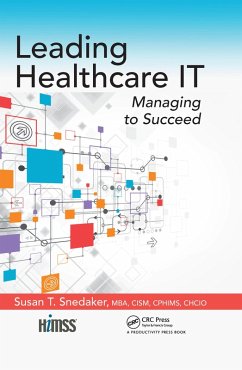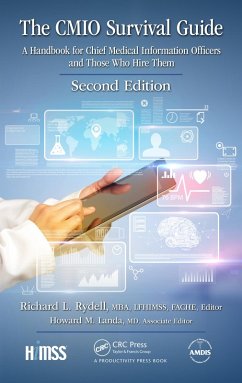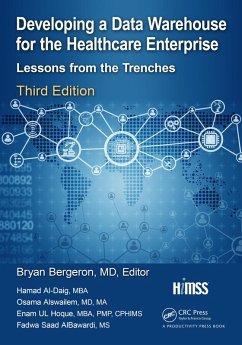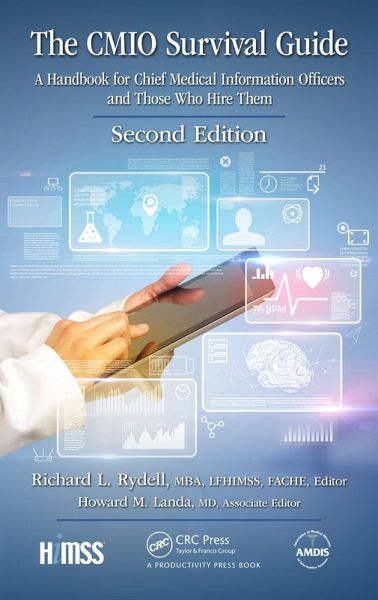
The CMIO Survival Guide (eBook, ePUB)
A Handbook for Chief Medical Information Officers and Those Who Hire Them, Second Edition
Versandkostenfrei!
Sofort per Download lieferbar
32,95 €
inkl. MwSt.
Weitere Ausgaben:

PAYBACK Punkte
16 °P sammeln!
The CMIO Survival Guide is the handbook for the new Chief Medical Information Officer, as well as for those recruiting or planning to recruit a CMIO. This quick reference is organized by real-world topics that CMIOs need to know, as well as the criteria that the CIO, CMO or CEO should consider in identifying excellence in a CMIO candidate. It is written by pioneering physicians and AMDIS faculty with a wealth of experience in medical informatics who provide guidance, advice and lessons learned for those interested in this relatively new role in healthcare.This second edition updates every chap...
The CMIO Survival Guide is the handbook for the new Chief Medical Information Officer, as well as for those recruiting or planning to recruit a CMIO. This quick reference is organized by real-world topics that CMIOs need to know, as well as the criteria that the CIO, CMO or CEO should consider in identifying excellence in a CMIO candidate. It is written by pioneering physicians and AMDIS faculty with a wealth of experience in medical informatics who provide guidance, advice and lessons learned for those interested in this relatively new role in healthcare.
This second edition updates every chapter in the original work and adds new chapters to address the changes in healthcare delivery, the role of the physician executive, technology, medical education, small and rural hospitals.
This second edition updates every chapter in the original work and adds new chapters to address the changes in healthcare delivery, the role of the physician executive, technology, medical education, small and rural hospitals.
Dieser Download kann aus rechtlichen Gründen nur mit Rechnungsadresse in A, B, BG, CY, CZ, D, DK, EW, E, FIN, F, GR, HR, H, IRL, I, LT, L, LR, M, NL, PL, P, R, S, SLO, SK ausgeliefert werden.




